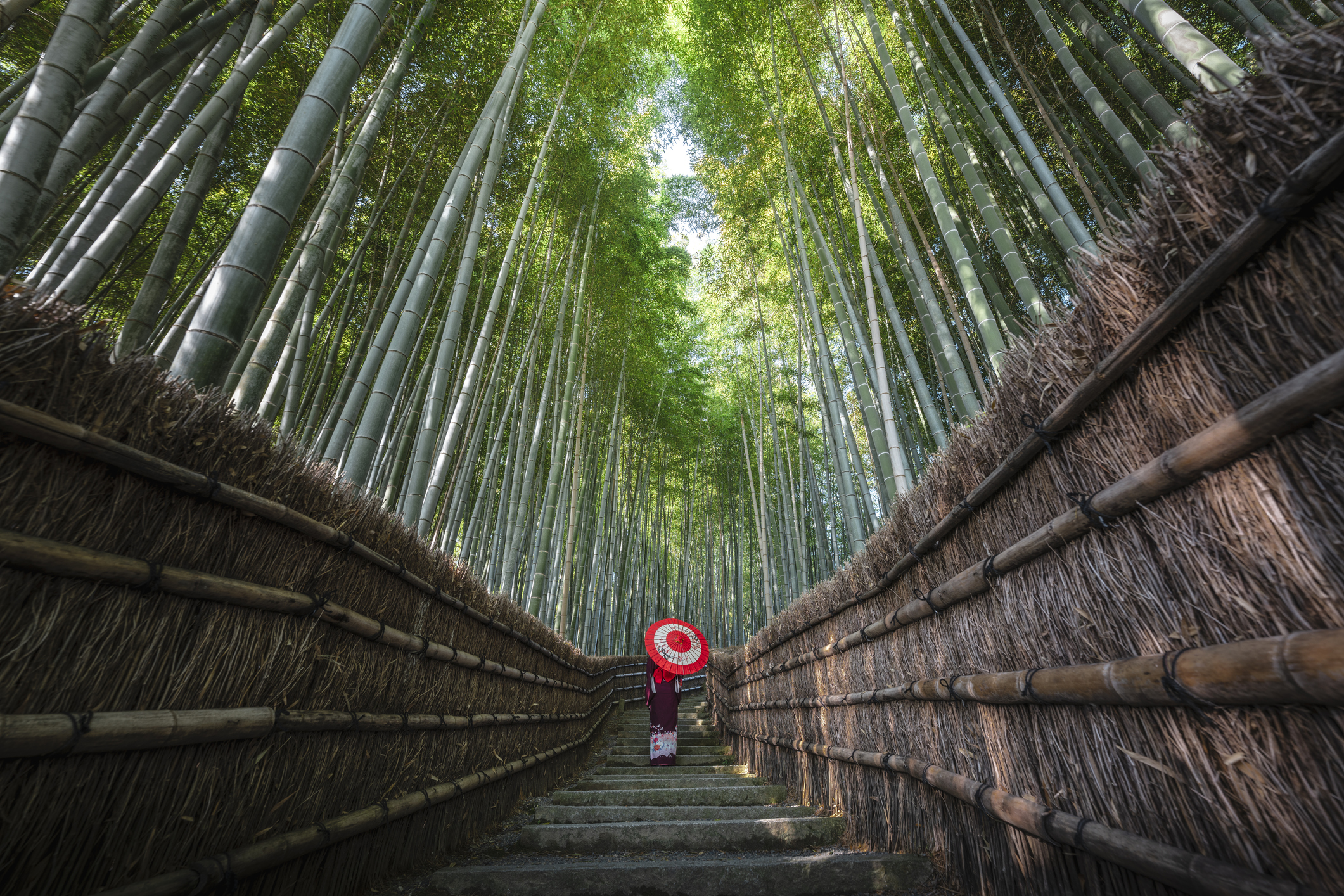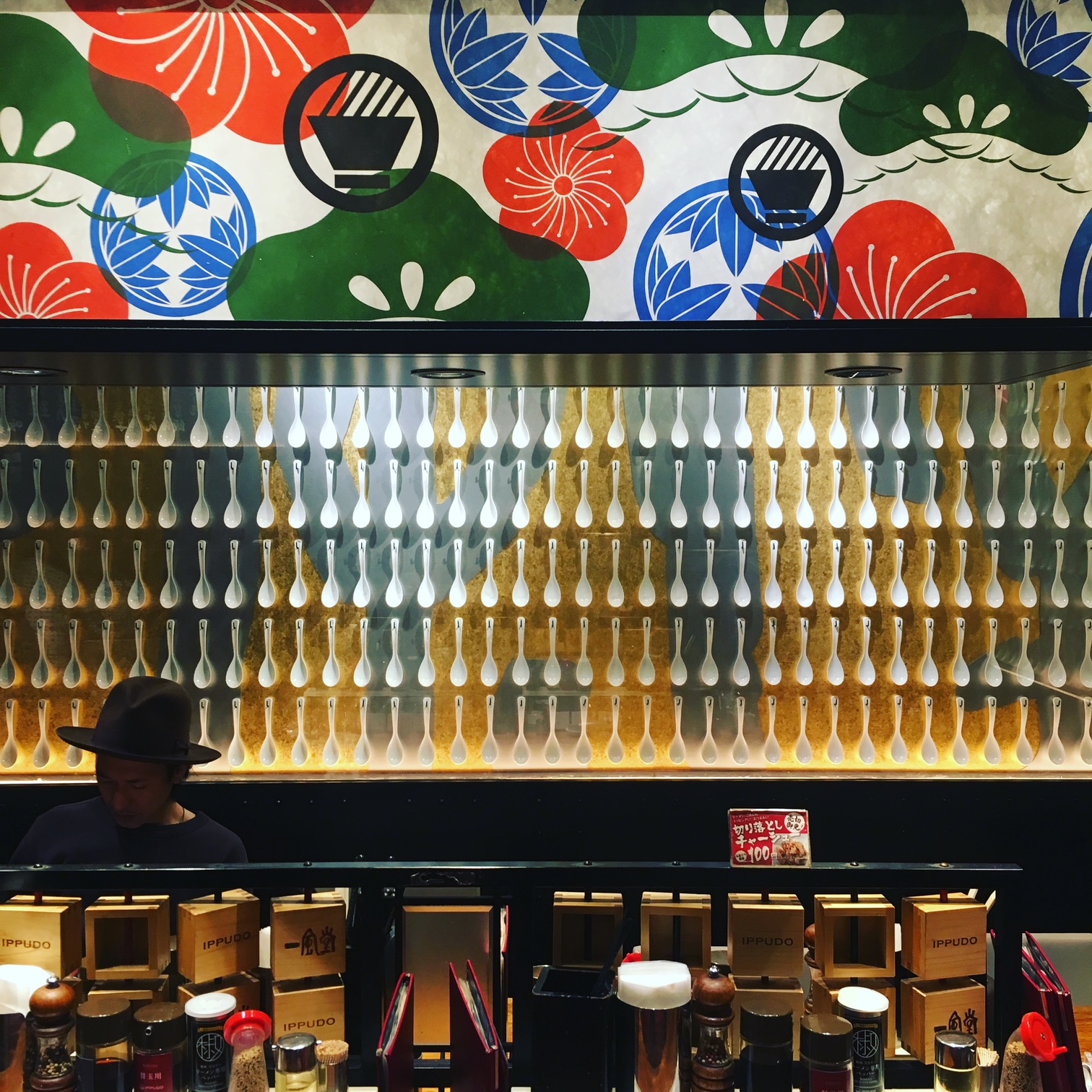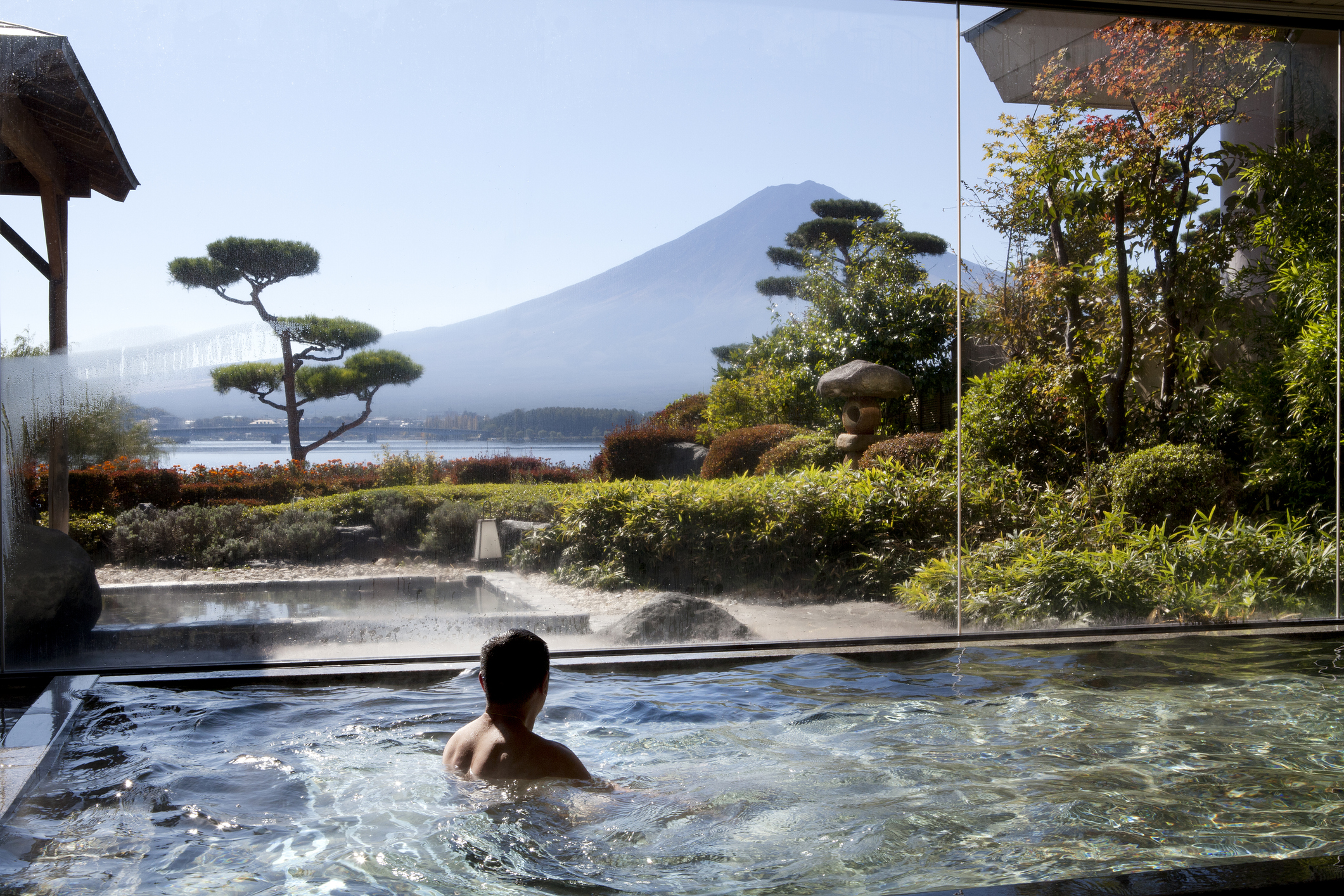Retire in Japan: It Ain’t Easy, Unless You’re Special
People find relocating to Japan worth the effort, as long as you can jump through those administrative hoops and be open to a flexible view of “retirement.”


Profit and prosper with the best of Kiplinger's advice on investing, taxes, retirement, personal finance and much more. Delivered daily. Enter your email in the box and click Sign Me Up.
You are now subscribed
Your newsletter sign-up was successful
Want to add more newsletters?

Delivered daily
Kiplinger Today
Profit and prosper with the best of Kiplinger's advice on investing, taxes, retirement, personal finance and much more delivered daily. Smart money moves start here.

Sent five days a week
Kiplinger A Step Ahead
Get practical help to make better financial decisions in your everyday life, from spending to savings on top deals.

Delivered daily
Kiplinger Closing Bell
Get today's biggest financial and investing headlines delivered to your inbox every day the U.S. stock market is open.

Sent twice a week
Kiplinger Adviser Intel
Financial pros across the country share best practices and fresh tactics to preserve and grow your wealth.

Delivered weekly
Kiplinger Tax Tips
Trim your federal and state tax bills with practical tax-planning and tax-cutting strategies.

Sent twice a week
Kiplinger Retirement Tips
Your twice-a-week guide to planning and enjoying a financially secure and richly rewarding retirement

Sent bimonthly.
Kiplinger Adviser Angle
Insights for advisers, wealth managers and other financial professionals.

Sent twice a week
Kiplinger Investing Weekly
Your twice-a-week roundup of promising stocks, funds, companies and industries you should consider, ones you should avoid, and why.

Sent weekly for six weeks
Kiplinger Invest for Retirement
Your step-by-step six-part series on how to invest for retirement, from devising a successful strategy to exactly which investments to choose.
Editor’s note: "Retire in Japan" is part of an ongoing series on retiring abroad. To see all the articles in the series, jump to the end.
Japan, with the world’s fourth-largest GDP after the U.S., China, and Germany (though if California were a country, it would beat out Japan for the No. 4 spot), is a highly developed nation with ultra-modern cities and excellent infrastructure. More than 60,000 U.S. expats live in Japan as of 2024, which represents nearly 2% of the country’s expat population. Japan appeals to retirees due to its relative affordability, as well as the world’s best sushi and fine dining restaurants.
In addition, “Japan is renowned for being a safe country and the reputation is well-founded and well-earned,” says Martin D. King, a U.S.-registered financial planner working in Tokyo. King is one of the founders and managing partners of Tyton Capital Advisors, an 11-year-old company based in Tokyo, specializing in internationally focused financial planning, investment, and insurance.
From just $107.88 $24.99 for Kiplinger Personal Finance
Become a smarter, better informed investor. Subscribe from just $107.88 $24.99, plus get up to 4 Special Issues

Sign up for Kiplinger’s Free Newsletters
Profit and prosper with the best of expert advice on investing, taxes, retirement, personal finance and more - straight to your e-mail.
Profit and prosper with the best of expert advice - straight to your e-mail.

If Japan seems an unlikely place to retire given its geographical distance from the U.S., the country’s modern cultural and commercial ties are close. Vast numbers of American professionals have enjoyed careers in the States, Asia, and Europe working for Japanese corporations that are household names, with Toyota topping the list (by far), followed by such entities as Mitsubishi, Sony, and Nintendo. Compared to other U.S. citizens, these professionals would find it easiest and most natural to make the leap to relocating to Japan.
Moreover, many white-collar professionals who have never directly worked for a Japanese company are familiar with the country’s exalted Japanese management and production principles, such as kaizen: the concept of continuous improvement strongly associated with Toyota and its global success story.
And then there are widely traveled Americans who have visited Japan numerous times and simply fell in love with its civilized atmosphere, distinctive aesthetics, and age-old history. As evidenced by the popularity of the acclaimed Shōgun, one of the most heavily streamed TV shows of 2024, Japan continues to fascinate.
The country that drew the U.S. into World War II by attacking Hawaii’s Pearl Harbor in 1941 now enjoys a level of respect in American society that would have been unfathomable to members of The Greatest Generation in their youth. Japan’s peaceability, technological achievements, capitalistic triumphs, and popular products represent some of the keys to that esteem, even reverence. After all, Toyota’s Lexus RX crossover is the most popular luxury vehicle in the U.S., the Toyota Camry is all but synonymous with well-to-do retirees, and Americans get behind the wheel of Acura, Honda, Nissan, Subaru, Mazda and Infiniti vehicles every day.

Where to land
With over 14 million people, Tokyo, one of the world’s biggest metros, is an obvious choice. The humid subtropical climate means that the city experiences fewer temperature extremes than a typical Northeastern U.S. city, with winters that rarely drop below 40 degrees and summers that rarely exceed 80 degrees. Tokyo is packed with diversions, from zoos (think pandas), theaters and concert halls, and a slew of acclaimed museums, including the Le Corbusier-designed National Museum of Western Art.
As of 2025, Tokyo boasts 170 Michelin-starred restaurants, more than any other city in the world. A one-star Michelin restaurant can cost as little as $67 per person, but a three-star might command Paris-like prices.
“Tokyo is usually the Japan gateway drug,” King says, “but due to the high cost of living relative to rural Japan, a lot of people will retire in adjoining prefectures like Saitama, Chiba, and Kanagawa.” Okinawa is also a natural destination for U.S. expats, due to the American milieu derived from the presence of the U.S. military base. “Depending on what part of Okinawa you find yourself in, you might find it hard to believe that you are not actually somewhere in America,” King says. “There are strong expat communities everywhere, but you can expect the biggest communities to be based in the metropolitan cities: Tokyo, Osaka, and Nagoya.”

Visa and money matters
Japan doesn’t make relocation easy for foreigners, to put a fine point on it. “In short, there is no simple retirement visa option for foreigners in Japan,” King says. “Most must qualify through work, family, or special skills.” Japan has no so-called Golden Visa and no passive investment scheme through real estate.
“Japan does not offer a direct citizenship or residency by investment program like those in Portugal, Spain, or Greece,” King confirms. “While there is an Investor/Business Manager Visa category, it is not a passive investment route; you must actively manage or establish a business, with a minimum investment of ¥5 million (about $34,000), and meet operational requirements such as hiring employees and maintaining a physical office.”
So, in general, in order to emigrate to Japan, it’s not going to be a carefree life of tuna rolls and sake. You have to run a little business. “This makes sense when you consider that Japan has a well-publicized demographic problem,” King says, referring to the country’s aging population. One in 10 Japanese is aged 80 and over, according to the World Economic Forum. “They're not falling over themselves to import more old people,” King says, bluntly.
“As Japan does not have a dedicated retirement visa for foreigners to stay long-term, most people must live in Japan for at least 10 years — at least five of those years on a work or family visa — before they can apply for permanent residency,” King explains.
There are some exceptions: highly skilled professionals can qualify for permanent residency in as little as one to three years if they meet certain criteria, and spouses of Japanese nationals may also qualify sooner. “The Long-Term Resident Visa is generally reserved for people with special family or humanitarian circumstances,” King says, citing a (highly specific) example of someone who is divorced from a Japanese national, but their kids have Japanese passports and live in Japan.
A Certificate of Eligibility (COE) is required for most long-term visas, but there is no COE or visa specifically for retirement. King says that you can fill out your visa applications at no cost, or pay an immigration lawyer to do it for you, “which is generally accepted to yield better results than self-directed applications.”
Once you jump through all these hoops, a two-bedroom apartment can fetch as little as $1,000 a month. Moreover, says King, “In Japan, healthcare costs cannot and will not bankrupt you, and the standard of care is high.”
Living in Japan: The takeaway
Retirees or anyone else desiring to live in Japan must look carefully to see if they can possibly qualify for one of the extremely limited categories that confer long-term residency. Either you must have the luck of a familial connection or special circumstance, offer a special skill, or be prepared to launch a business in your golden years.
Those who have cultivated connections to Japan throughout their careers will be best positioned to have contacts — and hear success stories — to help guide their way.
More on where to retire abroad
- Retire in New Zealand for Lush Landscapes and a Relaxed Vibe
- Retire in Italy for Culture and Beauty
- Retire in Greece for Relaxed Living With a Cinematic Backdrop
- Retire in Thailand Where 'The White Lotus' Was Filmed
- Retire in Mexico: Get a Lower Cost of Living Near the US
- Where to Retire: Living in Portugal as a US Retiree
- Where to Retire: Living in the Dominican Republic
- Where to Retire: Living in Panama Offers Stability and Charm
- Where to Retire: Living in Brazil Is More Than Carnival, Coffee and Copacabana
- Where to Retire 2025: Puerto Rico
Profit and prosper with the best of Kiplinger's advice on investing, taxes, retirement, personal finance and much more. Delivered daily. Enter your email in the box and click Sign Me Up.

Drew Limsky joined Kiplinger Digital as a freelance retirement writer because he believes that every day offers opportunities to make better financial decisions, and that it’s never too late to learn how to enhance your financial position and lifestyle. Drew is the former editor of Lexus magazine, Cadillac magazine, South Florida Business & Wealth, Business Jet Traveler, Interiors South Florida, and Mariner (for Holland America). Drew’s writing credits include The Wall Street Journal, New York Times, LA Times, Washington Post, Boston Globe, Yahoo, Worth, AD, Robb Report, Metropolis, Men’s Journal, and Business Insider. An Emory grad, Drew earned his JD and PhD at NYU, and lives in Miami Beach, Brooklyn, and Cape Cod.
-
 Quiz: Do You Know How to Avoid the "Medigap Trap?"
Quiz: Do You Know How to Avoid the "Medigap Trap?"Quiz Test your basic knowledge of the "Medigap Trap" in our quick quiz.
-
 5 Top Tax-Efficient Mutual Funds for Smarter Investing
5 Top Tax-Efficient Mutual Funds for Smarter InvestingMutual funds are many things, but "tax-friendly" usually isn't one of them. These are the exceptions.
-
 AI Sparks Existential Crisis for Software Stocks
AI Sparks Existential Crisis for Software StocksThe Kiplinger Letter Fears that SaaS subscription software could be rendered obsolete by artificial intelligence make investors jittery.
-
 Quiz: Do You Know How to Avoid the 'Medigap Trap?'
Quiz: Do You Know How to Avoid the 'Medigap Trap?'Quiz Test your basic knowledge of the "Medigap Trap" in our quick quiz.
-
 We Retired at 62 With $6.1 Million. My Wife Wants to Make Large Donations, but I Want to Travel and Buy a Lake House.
We Retired at 62 With $6.1 Million. My Wife Wants to Make Large Donations, but I Want to Travel and Buy a Lake House.We are 62 and finally retired after decades of hard work. I see the lakehouse as an investment in our happiness.
-
 Social Security Break-Even Math Is Helpful, But Don't Let It Dictate When You'll File
Social Security Break-Even Math Is Helpful, But Don't Let It Dictate When You'll FileYour Social Security break-even age tells you how long you'd need to live for delaying to pay off, but shouldn't be the sole basis for deciding when to claim.
-
 I'm an Opportunity Zone Pro: This Is How to Deliver Roth-Like Tax-Free Growth (Without Contribution Limits)
I'm an Opportunity Zone Pro: This Is How to Deliver Roth-Like Tax-Free Growth (Without Contribution Limits)Investors who combine Roth IRAs, the gold standard of tax-free savings, with qualified opportunity funds could enjoy decades of tax-free growth.
-
 I'm a Wealth Adviser Obsessed With Mahjong: Here Are 8 Ways It Can Teach Us How to Manage Our Money
I'm a Wealth Adviser Obsessed With Mahjong: Here Are 8 Ways It Can Teach Us How to Manage Our MoneyThis increasingly popular Chinese game can teach us not only how to help manage our money but also how important it is to connect with other people.
-
 Global Uncertainty Has Investors Running Scared: This Is How Advisers Can Reassure Them
Global Uncertainty Has Investors Running Scared: This Is How Advisers Can Reassure ThemHow can advisers reassure clients nervous about their plans in an increasingly complex and rapidly changing world? This conversational framework provides the key.
-
 5 Ronald Reagan Quotes Retirees Should Live By
5 Ronald Reagan Quotes Retirees Should Live ByThe Nation's 40th President's wit and wisdom can help retirees navigate their financial and personal journey with confidence.
-
 I'm a Real Estate Investing Pro: This Is How to Use 1031 Exchanges to Scale Up Your Real Estate Empire
I'm a Real Estate Investing Pro: This Is How to Use 1031 Exchanges to Scale Up Your Real Estate EmpireSmall rental properties can be excellent investments, but you can use 1031 exchanges to transition to commercial real estate for bigger wealth-building.